- 7 min to read
Free Cloud Database Services
Is there anything that’s not in the cloud today?
Starting with personal files and photographs, we’ve seen all other aspects of our lives, as well as our businesses, gradually move to the cloud. The Cloud Computing trend is expanding incredibly fast, which comes as no surprise given that it allows companies to avoid or minimize IT infrastructure costs.
Pretty much anything can be offered as a cloud service, including a database. Thinking about database solutions might not be the first thing that comes to mind when starting a business. Still, it is important as you’ll use them to save your business information, records, and various other data that you can’t afford to lose.
If you’re starting, chances are you’re on a tight budget, meaning you won’t be able to afford the best solutions for all business needs. You’ll have to micro-manage the budget and cost of services.
With that in mind, we wanted to help you out a bit with a list of the best free cloud database services that you could use for your business and introduce you to the top companies in the market.
The decision of which one you will use is on you!
Sign up for Bejamas newsletter!
Get the exclusive Jamstack web dev case studies (and more) in your mailbox!
What are Cloud Databases?
A cloud database is a storage system online where data is stored with higher flexibility when compared to traditional databases.
The cloud database itself comes in two modes: the traditional cloud, where the database is located on your infrastructure, and the Database-as-a-Service or DBaaS model, equivalent to SaaS in the database world.
In contrast to the traditional cloud, DBaaS is located on the service provider’s infrastructure, meaning that they manage the platform, allowing you and your company to focus on other parts of the business.
But, that’s only one of the many benefits cloud databases bring to the table.
Why use Cloud Databases?
⭐ DBaaS databases are easy to scale
Let’s say that you have a big new release planned, or it’s the peak time of the year for your business. Instead of having to task your team with upgrading your traditional database infrastructure, your servers, etc., all of which take up significant time and resources, scaling the cloud database service you’re using will only take one click.
⭐ Less admin and maintenance work
With DBaaS you don’t have to think about the hardware: you don’t need it, and there is nothing to maintain. Your IT team can spend their time working on something else.
Moreover, you don’t need to think about the updates or upgrades, both hardware and software-wise. The database service providers will take care of this, ensuring that you have access to the newest technology and ensuring they stay competitive in their market.
⭐ Secure
Let’s say it like this: if your IT team handles your cloud database on your infrastructure, they also have to implement security solutions that your company deems best since security will be your responsibility.
On the other hand, as companies exclusively in the cloud database business, DBaaS has already invested and implemented the best available security options for your database. You can rest assured that your database has been secured as well as possible.
⭐ Cost-effective
Initially, it might seem to your that DBaaS are very expensive, although they are, in fact, extremely cost-effective.
You don’t have to purchase, maintain or upgrade the tech infrastructure of your cloud database. You don’t have to have a dedicated team to manage your cloud database.
You can configure your DBaaS solution to suit your needs and only pay for what you use. Upgrades and downgrades are effortless and quick to do.
As such, it’s clear that DBaaS is the right solution for starting businesses or if your budget and human resources are limited.
Top Cloud Database Services
Now that we’ve established what DBaaS are and if they are right for you, let’s go over the different available solutions.
Amazon Web Service (AWS)
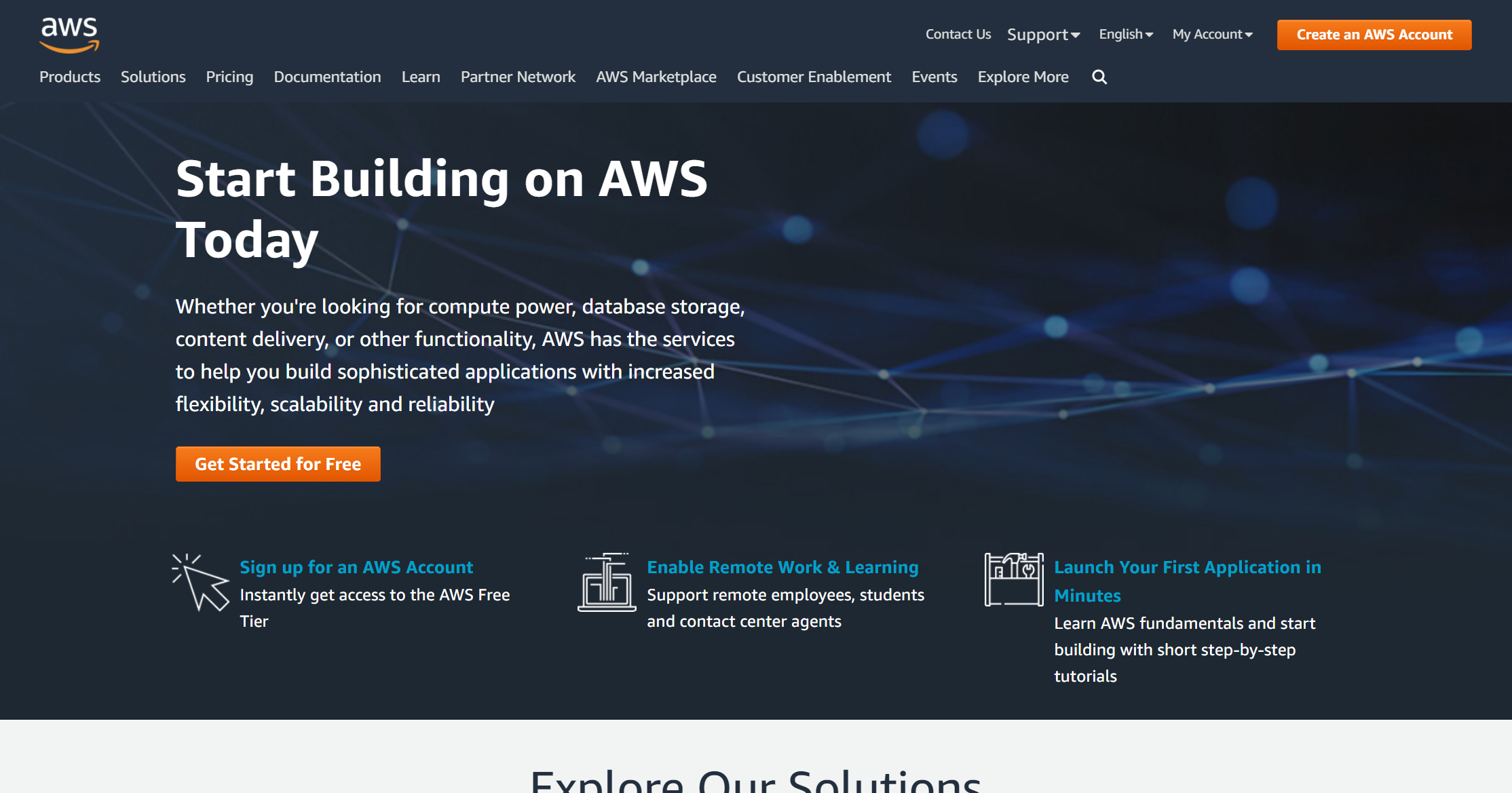
Amazon is one of the top players in the DBaaS market. Its offer includes a plethora of features with good support and documentation.
AWS offers many of its services free for one year, with some solutions even always free.
You could use their Relational Database Service for free for up to one year with 20 GB of space. It is a managed service for MySQL PostgreSQL, MariaDB, Oracle BYOL, or SQL Server.
Additionally, you could use DynamoDB, their NoSQL database solutions with 100 MB space for free for up to one year.
Although AWS can get expensive as you add more services on top, remember that they aren’t a top player for nothing, and you won’t be making a mistake if you go with them.
Google CS
Although this might come as a surprise, Google Cloud service is a bit behind the market leaders as a relatively new player in the market.
Be that as it may, Google still offers excellent DBaaS services with great support and documentation, which is always helpful to your business.
Google’s offer includes fully managed relational databases for MySQL, PostgreSQL, and SQL server. Its most significant advantage comes from its flexibility and simplicity and Google’s private global network that ensures top-notch security.
Google offers more than 20 products for free with $300 in free credits.
Azure
The Azure cloud computing platform has the most extensive global infrastructure of all cloud database service providers. Azure is great for building web apps, smart client apps, and XML web services.
In addition to excellent security, Azure’s biggest advantage lies in the fact that Microsoft offers all of the software that a business may need, simplifying the implementation of your unified ecosystem.
Azure offers some free services, including a $200 credit that you can spend in the first thirty days if you haven’t tried Azure before.
Fauna
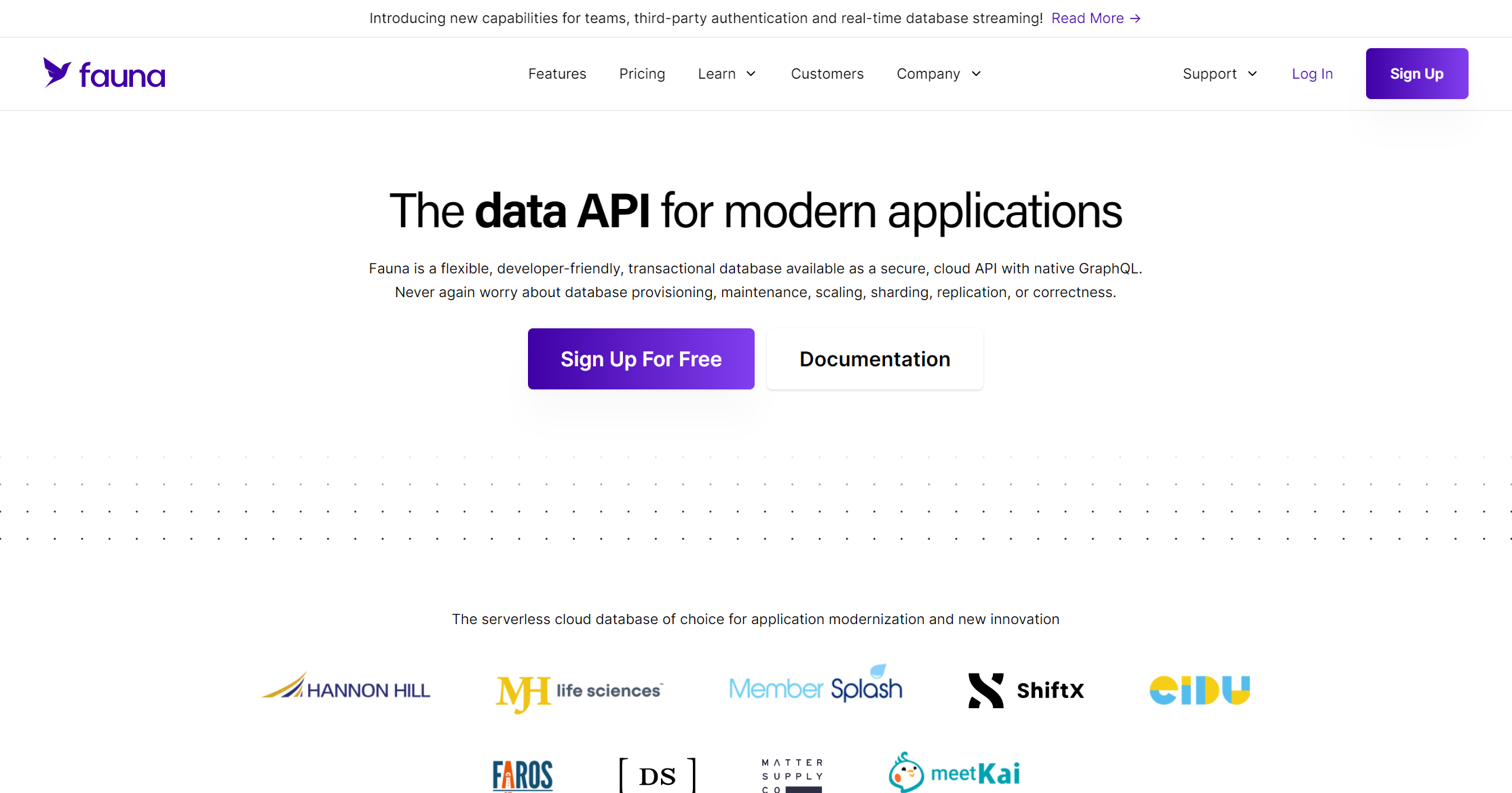
FaunaDB is a distributed OLTP NoSQL database that is ACID-compliant and offers a multi-model interface.
It currently supports two query languages. Its own FQL (Fauna Query Language) is an expression-oriented language with functional programming language characteristics and the open-source GraphQL.
Fauna lets you start for free (with 100k read ops, 50k write ops, 500k compute ops and 100 MB storage) and pay as you grow.
One of the most common use cases for FaunaDB is to act as a storage layer for Jamstack projects. Take a look at how we used Fauna in United Nations COVID-19 Response Creative Content Hub project.
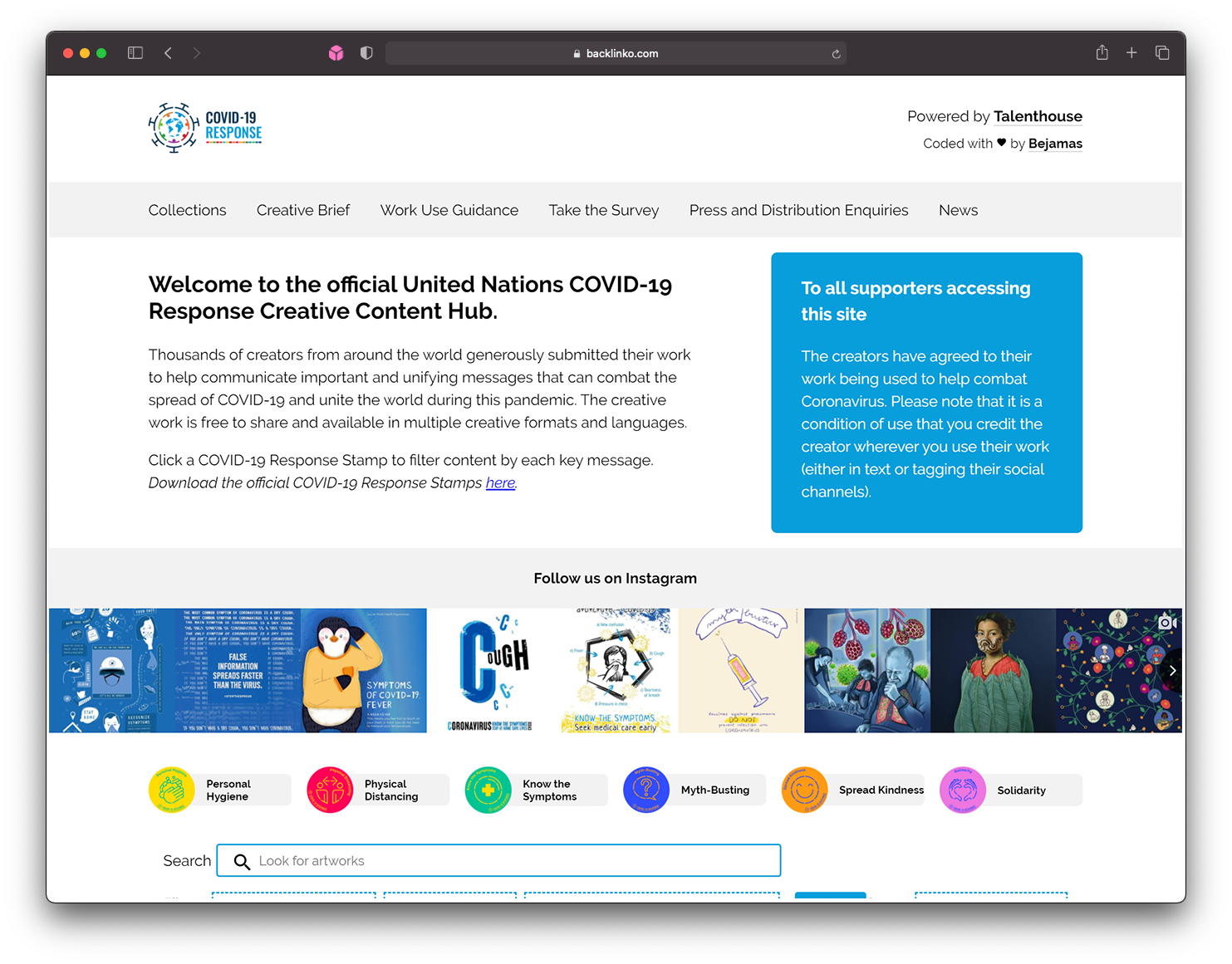
Oracle
The Oracle database is another popular option, especially for enterprise businesses.
Its offer is very comprehensive with various solutions, including excellent customer support, but it’s worth noting that the Oracle database can get pricey for SMEs compared to others.
Oracle offers a couple of always free plans, in addition to a free trial for paid services that includes a $300 credit.
Mongo
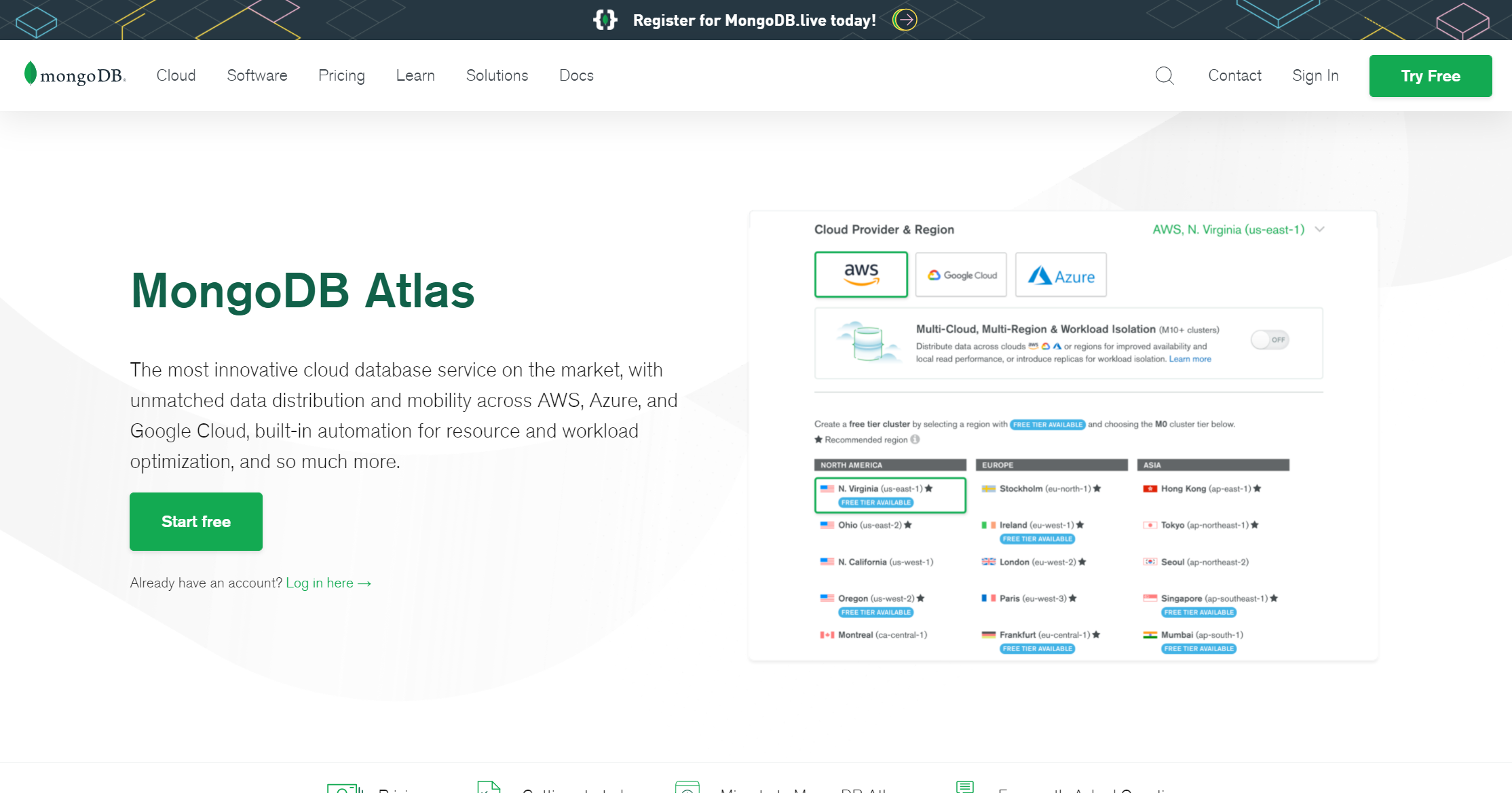
Mongo is one of the most popular open-source cloud database services with a very active and supportive community, although a bit limited when compared to other top players in this list.
Their multi-cloud database was built with developers in mind for building modern apps, and it works on AWS, Azure, and Google cloud.
However, while it is straightforward to scale, shard, and automate, keep in mind that it only works for NoSQL databases. If your business requires SQL to function, Mongo is not for you.
Mongo offers a starter-free plan.
Free Cloud Database Services
Even though the following are not among the biggest service providers in the market, they are free. Let’s dive in.
NuoDB
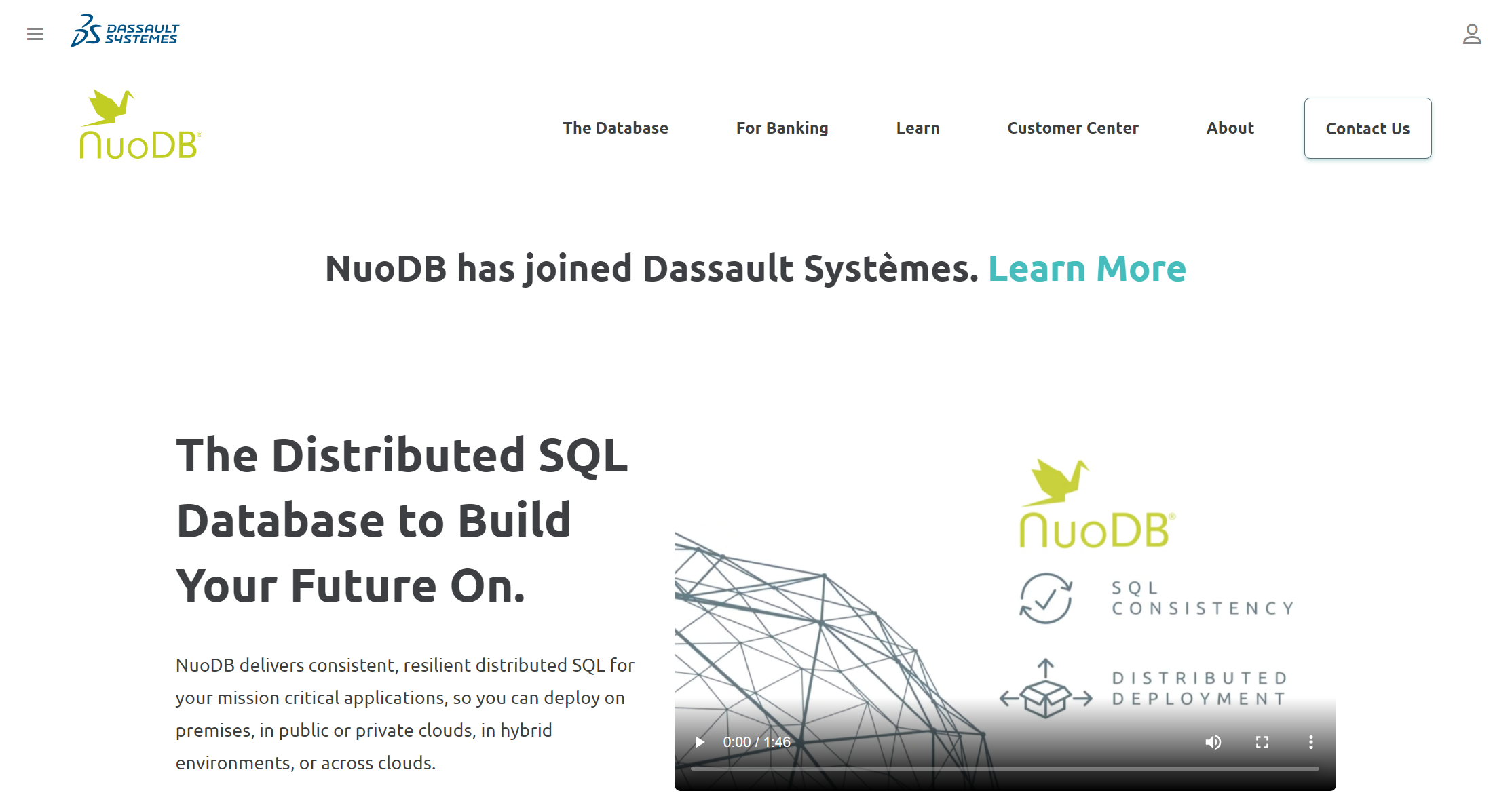
If you’re looking for a simple SQL cloud database solution, NuoDB might be the right choice for you.
NuoDB is highly scalable, ACID compliant, hybrid, and multi-cloud. NuoDB offers a great free package, and even if you upgrade to the enterprise plan, you’ll find that the price is pretty affordable compared to some other solutions on the list.
MariaDB
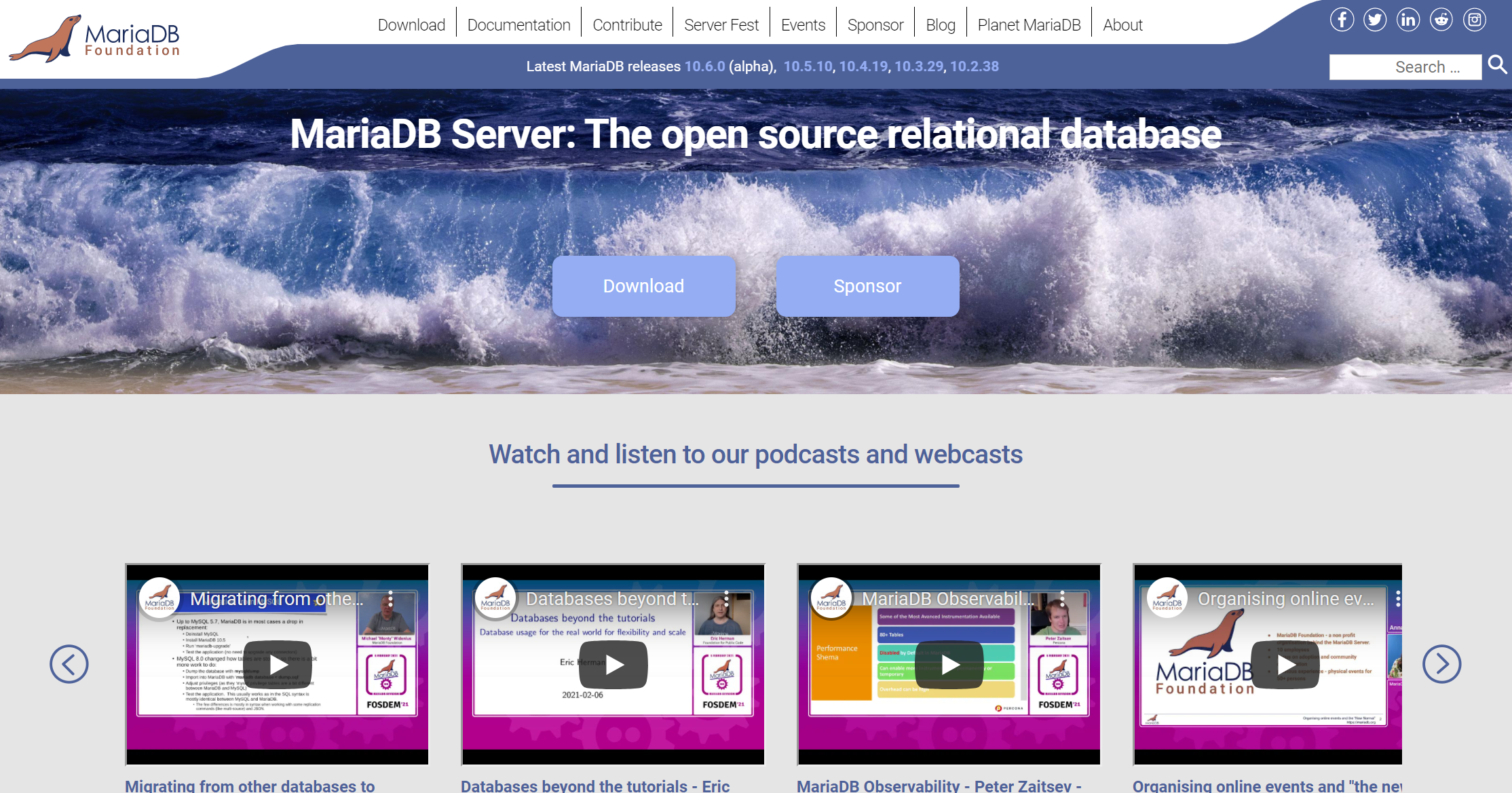
MariaDB is a popular open-source relational database made by the original developers of MySQL and guaranteed to stay open source.
It is one of the most stable databases that even includes optimizes to increase query performance and processing. However, it’s important to note that while the software is free, support isn’t included in the offer.
MarkLogic
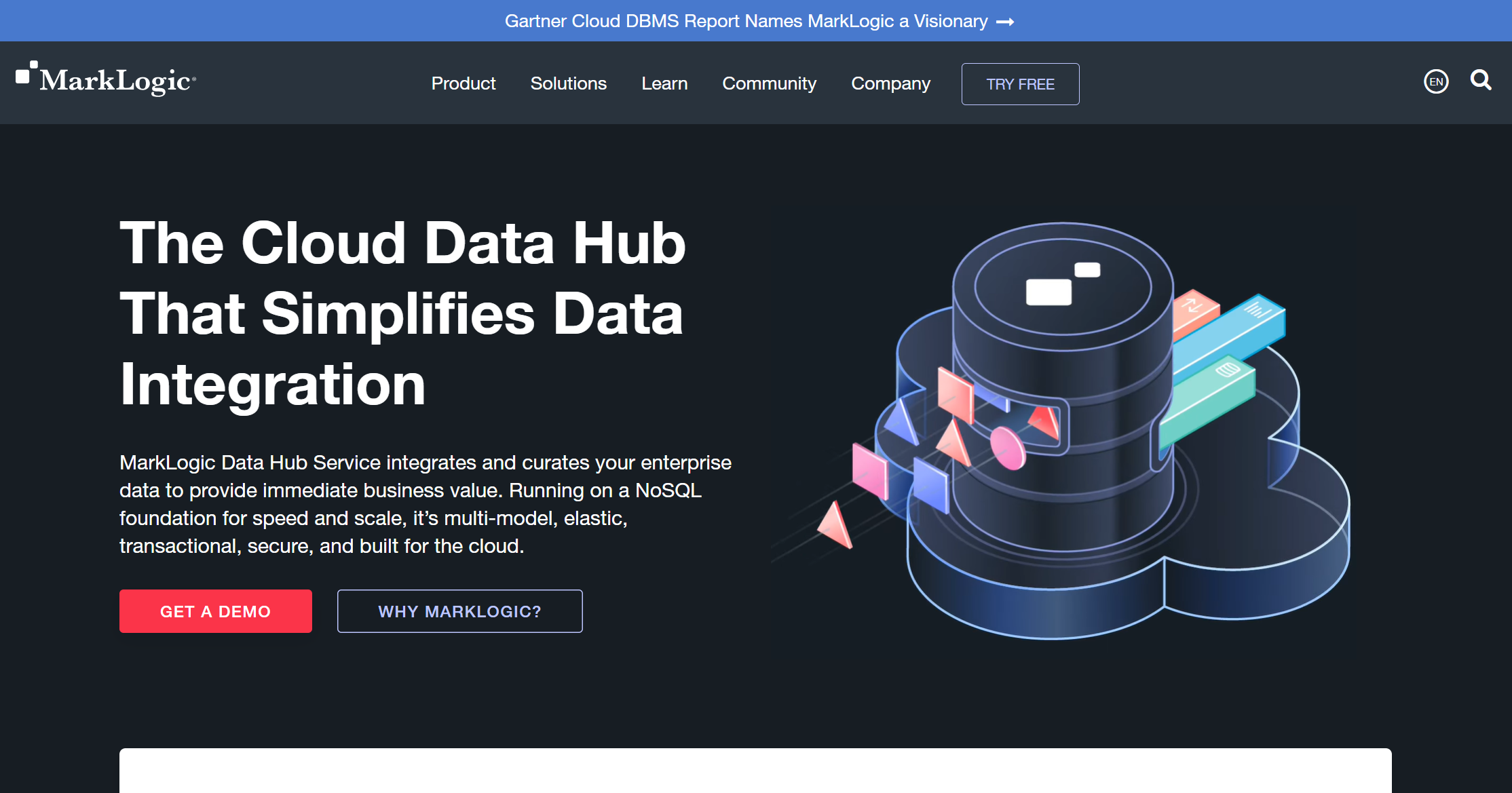
MarkLogic is a NoSQL database that offers 1TB of storage for free and ACID transactions. Besides, it enables semantics and bitemporal features that allow the hosting of data through different iterations.
MarkLogic has comprehensive documentation that you can use, and they offer an enterprise paid plan that startups can look into for upgrades.
IMB Db2 Warehouse
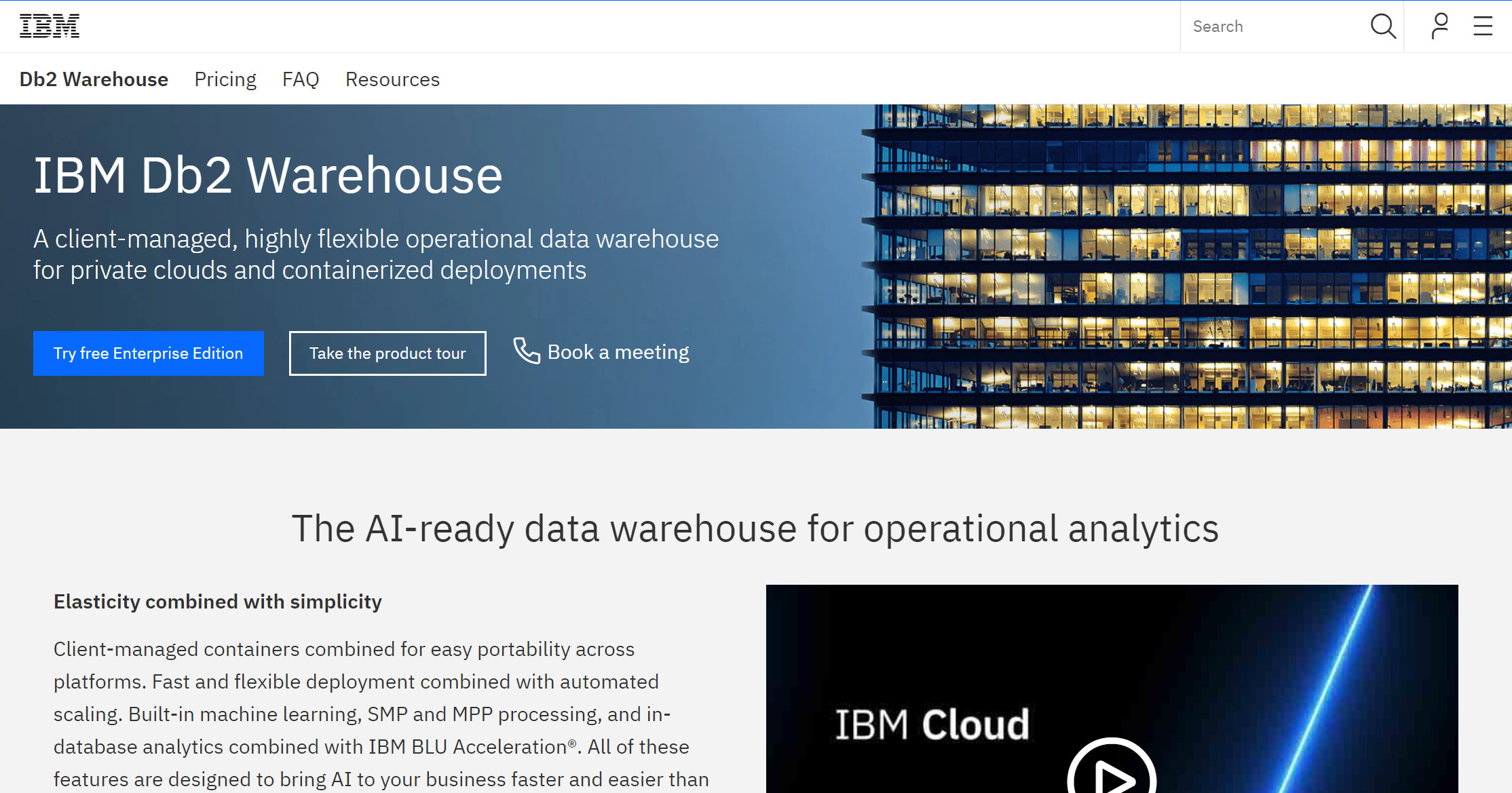
IBM’s Db2 Warehouse is a client-managed operational data warehouse that comes with an always free developer plan that your small business could use.
It enables fast and flexible deployment with automated scaling for private clouds and containerized deployment.
The bottom line is...
Implementing a cloud database into your business is one thing that you won’t be able to do without, especially if you’re in the business of software development. A suitable cloud database could very well improve your development process so much that it ends up being the factor that makes or breaks your business.
To choose which provider is right for you, write down the requirements and consult the rest of your development team. From there, it will be easy to determine the path you should take.
Good luck!
Have a project at hand that’s perfect for the Jamstack approach? Or you need a better performing and more secure website? Let’s get in touch!
👉CLICK HERE to schedule a 1-on-1 talk and learn more about what we can do for you and your business.
Further reading
NoSQL vs. SQL: Which Database Type is Better For Big Data Applications - https://analyticsindiamag.com/nosql-vs-sql-database-type-better-big-data-applications/Four tips to pick the right cloud database service - https://searchcloudcomputing.techtarget.com/tip/4-tips-to-pick-the-right-cloud-database-serviceHow to choose the right cloud database provider? - https://www.opensourceforu.com/2016/11/how-to-choose-right-cloud-database-provider/Cloud-Based Database Workloads: An Introduction - https://cloud.netapp.com/blog/cloud-based-database-challenges-and-advantagesData organization on the cloud - https://www.ibm.com/cloud/learn/what-is-cloud-database